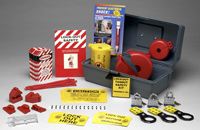 |
 |
| MSDS Topics |
Free Sites | FAQ's | Regulations | Glossary | Software | Suppliers |
| Books | Forum | Poll | Fun stuff | Quiz | Store | |
| MSDS and safety supplies | Search ALL our MSDS info | |||||
 | |||
 |
 |
 |
|
| Title: 10/23/2001 - Criteria for trade secret status | |
| Record Type: Interpretation | Standard Number: 1910.1200(i) |
Mr. Glenn House
Environmental, Health and Safety Manager
Gougeon Brothers, Inc.
100 Patterson Avenue
P.O. Box 908
Bay City, Michigan 48707
Dear Mr. House:
Thank you for your August 1, 2001 letter to the Occupational Safety and Health Administration's OSHA's) Directorate of Compliance Programs (DCP). Please be aware that this response may not be applicable to any question or situation not delineated within your original correspondence. You requested clarification of OSHA's Hazard Communication Standard (HCS), 29 CFR 1910.1200, as it pertains to trade secrets. Your question is restated below followed by our response.
Question: When can an employer claim trade secret status, and what is required for an employer to claim trade secret status of a hazardous chemical ingredient?
|
Reply: An employer can claim trade secret status when it can support such a claim. A trade secret may consist of any formula, pattern, device, or compilation of information which is used in one's business, and which provides an opportunity to obtain an advantage over competitors who do not know or use it. However, chemical ingredients of public knowledge or of general knowledge in an industry that are disclosed by the goods one markets cannot be claimed as a trade secret. And, despite the claim that a hazardous chemical is a trade secret, the permissible exposure limit (PEL), threshold limit value (TLV), or other designated exposure limits, as well as properties and effects of the hazardous ingredients, must be included on the material safety data sheet (MSDS). While we cannot provide an exact definition of a trade secret applicable to all situations, Appendix D to 29 CFR 1910.1200, OSHA's Hazard Communication Standard, outlines some factors to be considered in determining whether or not a chemical ingredient is in fact the employer's secret. Those factors include: |  Good safety practices are no secret. Get your safety kits and accessories at Safety Emporium! |
As you may know, the State of Michigan administers its own occupational safety and health program under provisions of the Occupational Safety and Health Act of 1970 (the Act), with approval and monitoring by Federal OSHA. The Act requires states that administer their own OSH plans to promulgate regulations which are "at least as effective" as the federal regulations, although they may be more stringent. To get Michigan's position on this issue, you may contact:
Sincerely,
Richard E. Fairfax, Director
Directorate of Compliance Programs
The official, public domain, OSHA version of this document is available at http://www.osha.gov/pls/oshaweb/owadisp.show_document?p_table=INTERPRETATIONS&p_id=24263&p_text_version=FALSE